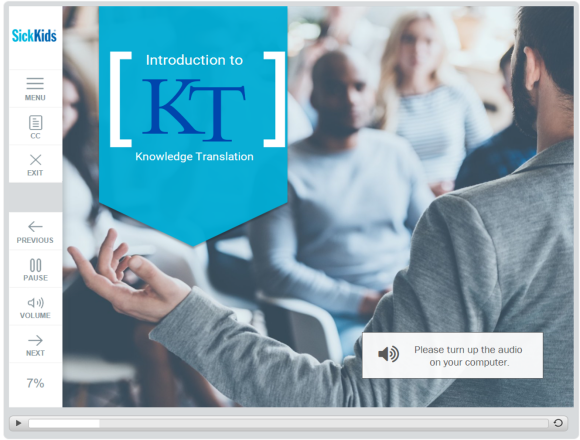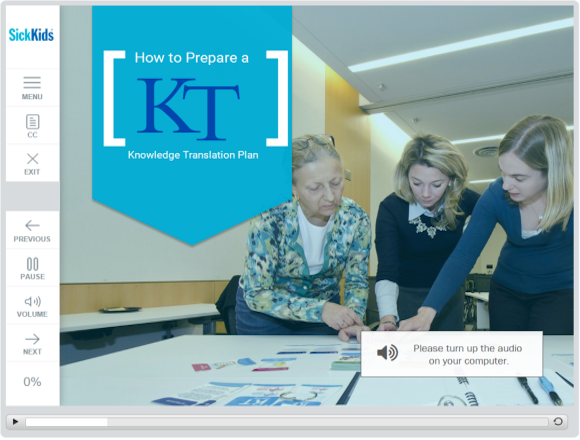Resources
Planning for Knowledge Mobilization and Impact
Effective KMb rquires planning, much like the other parts of any research application. Planning can provide a stable foundation to pursue positive impact from your work, whether that's within your research community, patient or clinician group or elsewhere in society.
Other resources
If you are new to the terms Knowledge Translation (KT) or Knowledge Mobilization (KMb), the following resources are very useful. Note that while you might be new to those terms, you could have been engaging in KMb activities already in your research.
E-learning modules from The Hospital for Sick Children (SickKids)
|
The first is Introduction to Knowledge Translation, which introduces the concept of knowledge translation (KT) and how it can be useful in your work. It is a valuable resource for anyone interested in closing the research to practice gap and is applicable to a diverse range of sectors. Upon completion, you will be able to define knowledge translation and understand its relevance to your work. Estimated duration: 13 minutes |
The second is How to Prepare a Knowledge Translation Plan. It will walk you through the key elements of building a KT plan using the Knowledge Translation Planning Template© (KTPT). Upon completion of this module, you will be able to use the KTPT© to prepare a KT plan and work through the key components of KT planning in a step by step manner that will guide your KT activities. Estimated duration: 25 minutes |
Tri-agency information on KMb/KT
The following are guidelines and support that the tri-agencies make available on their own websites:








